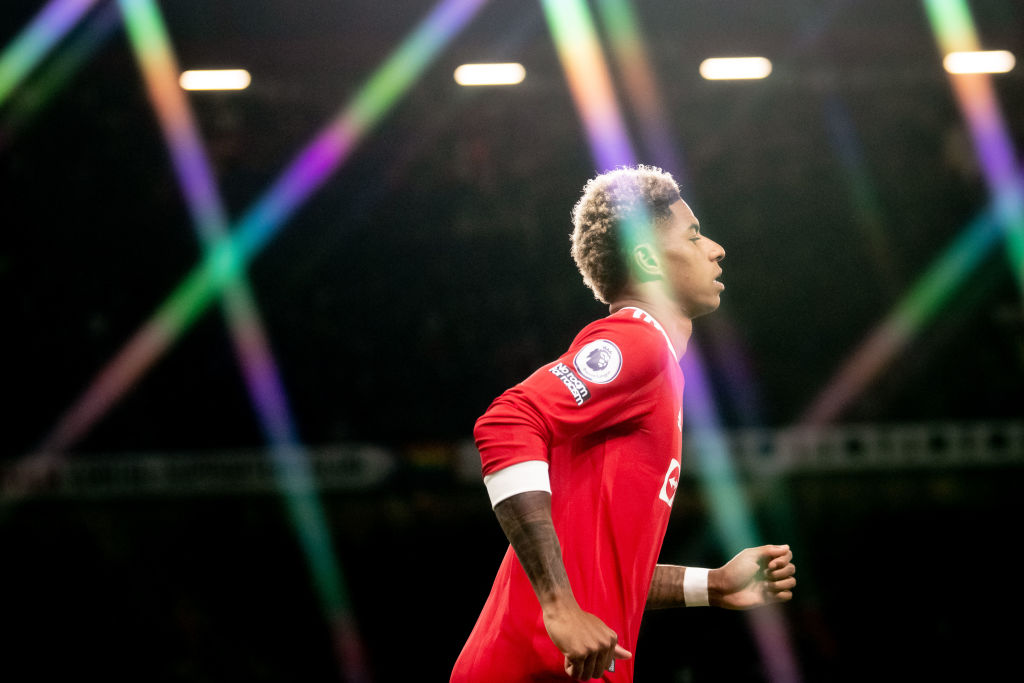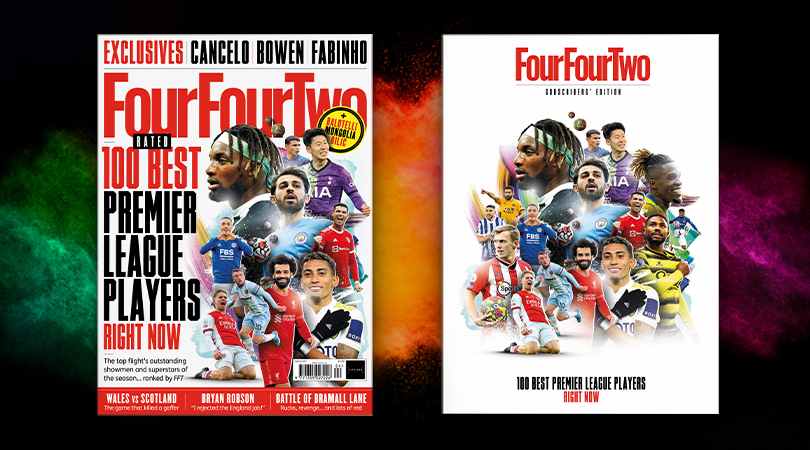Why Marcus Rashford has nothing to apologise for: the apology is owed to him
Marcus Rashford is in the spotlight once more – this time for a heated reaction towards a fan – but why should any footballer have to put up with the abuse culture we've created around them?

Leave Old Trafford an hour or 90 minutes after the final whistle and, apart from when they are actually on the pitch, it can be a rare time to see Manchester United footballers in the flesh. Fans tend to congregate around barriers as they head for cars. It can offer a rare opportunity for interaction: a brief word, a selfie, an autograph. Or, indeed, in-person abuse.
Marcus Rashford apologised, even if he seemed to have precious little to actually apologise for, and gave a clarification, that he had used his forefinger rather than his middle finger, to gesture to a supporter after United’s Champions League defeat to Atletico Madrid.
Perhaps, though, sorry should be said to him, not by him.
Rashford has a capacity to highlight pressing issues. Often that reflects his charitable instincts and social conscience. Once again, albeit rather against his wishes, he has alighted on a problem in society: abuse. It feels it has mushroomed in recent years: partly because of the toxic, corrosive culture fostered by social media, maybe because two years of forms of lockdown seem to have created an angrier world. For Rashford, evidently, it has felt a constant companion of late.
DECISIONS, DECISIONS What are Marcus Rashford's options if he does leave Manchester United?
“For weeks, I have been heckled, threatened and questioned,” he wrote in his statement. And given how deliberately inaccessible United’s Carrington training ground is, the chances are that he meant online.
Somehow a right to free speech has become warped in the minds of many, to a right to abuse: occasionally in the flesh, more often electronically. The paradox is that as footballers have rarely seemed more distant from the general public, separated in their earning power and their lifestyles, they have never been closer, when it is easy to message them, to give them the dubious benefit of our thoughts and imagined expertise. As this week’s furore has demonstrated, there is a double standard whereby some think they can say whatever they like to anyone with a public profile but act outraged if they respond. Many a footballer has shown plenty of restraint.
Get FourFourTwo Newsletter
The best features, fun and footballing quizzes, straight to your inbox every week.
There are 2 sides to every story. pic.twitter.com/Xl2PRyaX2cMarch 16, 2022
Rashford may be an extreme example, as a very famous footballer at perhaps the world’s biggest club, who has a vast following and has used social media to campaign and whose own form has been poor during a time when the team has underachieved.
But if targeting him shows a lack of understanding - any examination of his career and his character suggests he cares – he might be the face of a wider problem. He often is: few, it seems, have been racially abused as much and if the authorities have belatedly started to act in that respect, there is a broader culture of abuse. Social-media companies have been moral vacuums for too long.
It is easy to say players should avoid Instagram, Twitter and Facebook and less simple for them to actually do that. Even players who turn off replies, rarely check their phones and subcontract their accounts out to companies can find it hard to ignore a torrent of abuse. As Frank Lampard noted last week, he didn’t enjoy being given five out of 10 in the newspapers for his performances for England 20 years ago, but things are on a different level now.
It is sadly difficult to imagine some kind of cultural reset to forge an environment where the reaction to a defeat or an individual error does not involve invective and worse. It is hard to alter the misplaced sense of entitlement so many possess that their view is so important it has to be directed to the player themselves; even though it is actually very easy to express an opinion about a footballer without tagging them in. It should be the simplest step: instead, we are in a dysfunctional environment where far too many think they are justified in sending strangers unwanted and unpleasant messages.
Perhaps, too, Rashford is experiencing a United-specific phenomenon after a two-decade period when many – usually with no connection to Manchester or the club – signed up to support them for a seeming guarantee of glory, which has now disappeared in the last nine years.
A way to garner attention, especially in a huge fanbase, is to take an extreme stance and to voice it to someone with 5.4 million followers. Perhaps the irony was that when Rashford reacted, it was to someone he could actually see, because much of the poison in the climate comes from those whose faces he will never know.
Subscribe to FourFourTwo today and save over a third on shop price
Restock your kit bag with the best deals for footballers on Amazon right now
ALSO READ
THE CHELSEA CRISIS How the Blues will adapt to life after Roman Abramovich
PACKED BAGS Which players will leave Manchester United? 10 players who could be off before next season
Richard Jolly also writes for the National, the Guardian, the Observer, the Straits Times, the Independent, Sporting Life, Football 365 and the Blizzard. He has written for the FourFourTwo website since 2018 and for the magazine in the 1990s and the 2020s, but not in between. He has covered 1500+ games and remembers a disturbing number of the 0-0 draws.


